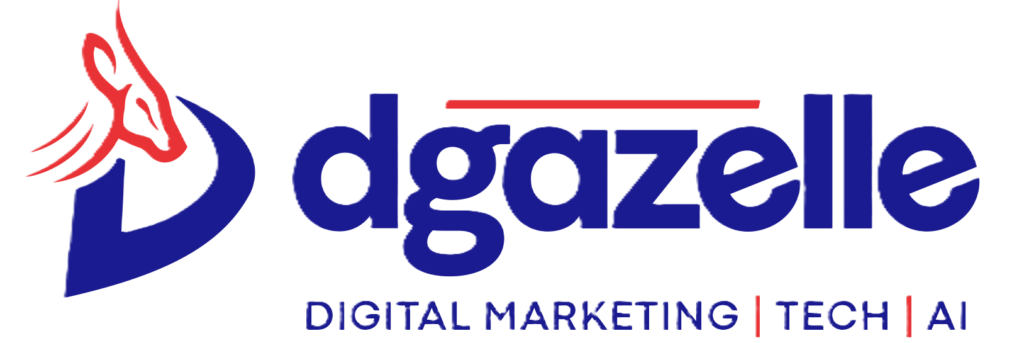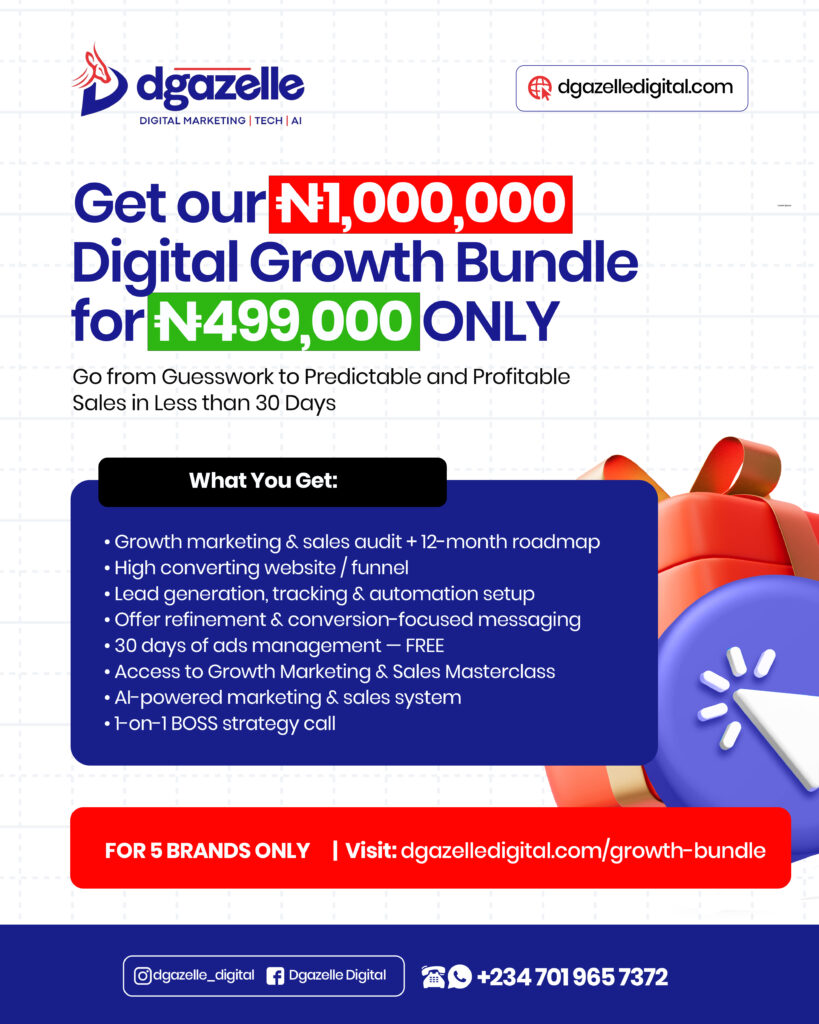Paid ads can be your fastest shortcut to scaling a business if you know what you’re doing. Done right, paid ads can put your product in front of the right people, at the right time, with the right offer. Done wrong, they can eat your budget faster than Lagos traffic swallows time.
If you’ve ever boosted a post on Facebook and seen nothing but likes from people who will never buy, you already know that throwing money at ads is not the same as growing your business. Scaling with paid ads requires precision, not guesswork.
In this guide, I’ll walk you through how to use paid ads effectively so you can grow your business without wasting a single naira.
1. Start with a Clear, Scalable Offer
Before you even think of running ads, ask yourself:
If 1,000 people bought what I’m selling tomorrow, can I fulfill it without breaking my business?
Scaling with ads is not about selling “more”; it’s about selling more profitably and sustainably. That means your offer must be:
Profitable after ad spend. If your product costs ₦5,000 and you spend ₦3,000 to acquire a customer, your profit margin may be too slim to scale.
In-demand, so you’re not spending heavily to convince people they need it.
Easy to deliver without sacrificing quality, even at high volumes.
If your offer can’t handle scale, ads will only make the cracks in your business wider.
2. Know Exactly Who You’re Targeting
One of the biggest mistakes Nigerian business owners make with paid ads is targeting “everybody.”
The reality? If your audience is “everyone,” your ad will resonate with no one.
Paid ads work best when you know your ideal customer deeply—their age, interests, location, buying power, and most importantly, the problem you solve for them.
For example:
If you sell Ankara fabrics, targeting “fashion lovers” in Nigeria is too broad. Target “women aged 25–45 in Lagos and Abuja who follow specific fashion influencers and shop online.”
If you run a catering service, don’t just target “people in Nigeria.” Target “event planners, engaged couples, and corporate admin staff within 50 km of your base.”
The more specific you are, the less you waste money on people who will never buy.
3. Choose the Right Platform for Your Audience
Not every platform will give you the same results. Facebook, Instagram, Google, TikTok, and LinkedIn all work differently, and where your customers spend time should determine where you advertise.
- Facebook & Instagram Ads: Great for visual products, lifestyle brands, and impulse buys. Works well for B2C (business to customer).
- Google Ads: Ideal if your audience is actively searching for what you sell (e.g., “best event decorators in Lagos”).
- TikTok Ads: Perfect for creative, short videos targeting Gen Z and younger Millennials.
- LinkedIn Ads: High-value for B2B services and professional audiences.
If your target market is 40-year-old business executives, TikTok is probably not your best bet. If you sell skincare to Gen Z, Google Search ads alone won’t cut it; you need the visual and viral pull of Instagram or TikTok.
4. Stop Boosting Posts; Start Running Campaigns
Boosting posts on Facebook or Instagram may feel quick and easy, but it’s one of the fastest ways to waste money. Boosts are designed for engagement (likes, shares, comments), not sales.
If you want to scale, you need to run proper ad campaigns through the platform’s Ads Manager. This allows you to:
- Choose campaign objectives like conversions, leads, or website purchases.
- Use advanced targeting options.
- Test multiple ad variations.
- Track performance in detail.
Think of boosting as throwing money at a crowd to shout your name, while running campaigns is like paying for a billboard placed directly in front of your exact customers.
5. Use the Funnel Approach
A big mistake is expecting strangers to see your ad once and buy immediately. Scaling works best when you guide people through a customer journey, not just a one-time sales pitch.
Here’s a simple 3-step paid ad funnel:
- Step 1: Awareness Ads
Introduce your brand with engaging content. The goal is to get attention from the right audience (e.g., a short video showing your product in action or a blog post promoted via ads).
- Step 2: Consideration Ads
Retarget people who engaged with your first ad or visited your site. Show them more details, testimonials, before-and-after results, or behind-the-scenes videos.
- Step 3: Conversion Ads
Target only warm leads, people who have already interacted with your brand, with an irresistible offer (discount, bonus, limited-time deal).
This approach warms up your audience and increases the likelihood they’ll buy.
6. Set a Testing Budget Before Scaling
When you run paid ads, your first goal isn’t to make profit immediately; it’s to find what works.
Allocate a testing budget for the first 7–14 days. During this period, test different:
- Audiences
- Ad creatives (images, videos, captions)
- Offers
Example: If your monthly ad budget is ₦200,000, you could spend ₦50,000 in the first two weeks testing, then put the remaining ₦150,000 into the best-performing ad.
Scaling without testing is like trying to build a house without checking if the foundation is solid.
7. Track the Right Metrics
Likes and views are nice, but they won’t pay your bills. The key metrics to track when scaling with paid ads are
- Cost per acquisition (CPA): how much it costs to get one customer.
- Return on ad spend (ROAS): for every ₦1 spent on ads, how much you earn back.
- Click-through rate (CTR): how compelling your ad is to your audience.
- Conversion rate: the percentage of people who take the action you want (buy, sign up, etc.).
When you track the right numbers, you can cut ads that are wasting money and increase spending on ads that are profitable.
8. Retarget or Lose Money
Most people won’t buy the first time they see your ad. If you’re not retargeting, you’re losing money.
Retargeting means showing follow-up ads to people who:
- Clicked your ad but didn’t buy.
- Added items to cart but abandoned checkout.
- Watched your videos or visited your website.
These people are far more likely to convert than strangers. Platforms like Facebook and Google make retargeting simple once you install tracking pixels.
9. Use High-Quality Creative
Your ad creative, the visuals, and the copy can make or break your results. Blurry images, poorly lit videos, or generic captions will get ignored.
For Nigerian audiences especially, authenticity sells. Show real people using your product, share relatable scenarios, and use clear local language your target market understands.
Example: If you’re selling a food delivery service, show mouthwatering, close-up shots of the food being prepared and delivered, not just a flyer with a list of menu items.
10. Scale Gradually
Once you find a winning ad, don’t jump from ₦10,000 a day to ₦100,000 a day overnight. Sudden jumps can confuse the ad algorithm and hurt performance.
Instead, increase your budget gradually by 20–30% every few days while monitoring results. This keeps your campaign stable and profitable.
The Bottom Line
Scaling with paid ads isn’t about spending more; it’s about spending smart. The key is to:
- Have a scalable, profitable offer.
- Target the right audience on the right platform.
- Use a funnel, test, track, and retarget.
- Invest in high-quality creatives.
- Scale gradually to maintain profitability.
Paid ads are like fuel. If your engine is in good shape, they’ll take you further, faster. But if your business isn’t ready to handle scale, that same fuel will burn through your budget without moving you forward.
Ready to scale your business with paid ads without wasting money?
At Dgazelle Agency, we specialize in creating high-converting ad campaigns that turn clicks into customers. We don’t just run ads; we build systems that scale.
📩 Click here to contact us today to start your growth journey.







